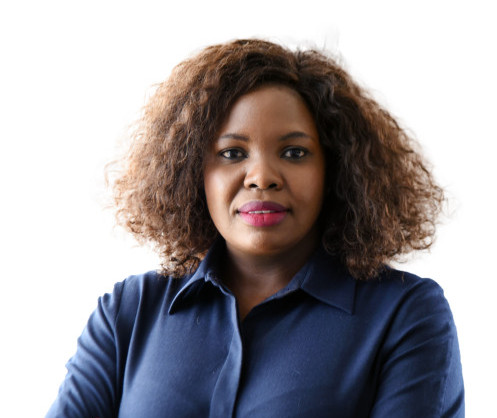By Fhulu Badugela, CEO of Multichoice Africa (www.MultiChoice.com)
As MultiChoice published its annual ESG report earlier this month, I was struck by the aptness of the term sometimes used in relation to such documents: integrated reporting. Integration is fundamental to any kind of environmental, social and governance (ESG) impact.
MultiChoice Group has had three decades to find that particular sweet spot, refining its formula of enriching lives, while transforming African entertainment and broader society.
The beauty of the approach can be seen in the way key business touchpoints dovetail with ESG principles.
By way of illustration, the MultiChoice commitment to hyperlocal storytelling has meant a need to create homegrown, locally relevant content. This in turn has led MultiChoice to create regional MultiChoice Talent Factory (MTF) academies in Nairobi, Lagos and Lusaka, training aspiring filmmakers.
Not only has this created a rich pipeline of authentic talent, it has built a vast library of local content. This fuels the ongoing success of MultiChoice as an entertainment platform, where Africa’s people can see African creators telling African stories.
Social upliftment
In ESG parlance, this supports the social-development pillar. To date, 467 filmmakers have been trained by the MTF. These young people have gone on to work on hit African shows on regional channels across the continent.
In East Africa, graduates secured story development grants, gained acclaim at international film festivals and showcased their commitment to environmental consciousness by presenting at the Youth and Climate Action meeting.
In West Africa, Azeezah Sama, produced by a student from the class of 2023, was selected for prestigious film festivals such as the Toronto International Nollywood Film Festival. Africa Magic commissioned productions from three MTF alumni companies, generating employment opportunities and amplifying the programme’s impact in the region.
Meanwhile, in Southern Africa, MTF alumni feature films have premiered on Zambezi Magic, and interns have contributed to more than 30 professional productions, including hit shows like Idols, Adulting, My Brother’s Keeper, Champions, and Gen Zee.
Economic impact
Besides skills development, MultiChoice makes direct investments in job creation and economic empowerment for emerging economic sectors. The MultiChoice Enterprise Development Trust oversees two key initiatives aimed at fostering the growth of startups and small enterprises: the Innovation Fund and the Africa Accelerator programme.
To date, the MultiChoice Innovation Fund has supported 77 black-owned small businesses with at least 50% female-black ownership and disbursed R407 million in loans, grants and business development expenses. This has created 1 400 employment opportunities.
MultiChoice Group has had three decades to find that particular sweet spot, refining its formula of enriching lives, while transforming African entertainment and broader society
Last year, the MultiChoice Accelerator programme helped 11 entrepreneurs from South Africa to secure more than $17 million in investments from investors in the United Arab Emirates.
Also last year, the Enterprise Development Fund funded four new tech-related companies, including two owned by black women, to the tune of R26.74 million, creating 395 jobs.
Developmental governance
Integrated ESG principles mean that the crucial MultiChoice governance function must also have a developmental role, while still enabling the business generate value for all stakeholders.
That means ethical, developmental governance. The Group inculcates these principles in our people through mandatory training – anti-bribery, ethical conduct; and “better place to work” training on the MultiChoice Academy platform.
Another of the company’s biggest governance focus areas is the fight against content piracy, which poses a significant threat to the business and the wider industry. With Partners Against Piracy (PAP), MultiChoice has signed Memorandums of Understanding with governments across Africa to combat broadcasting piracy.
The MOUs establish partnerships for capacity building, benchmarking, and experience sharing, as well as intellectual-property rights protection, training, and skills development. In addition, a multi-governmental workshop in mid-2024 will review piracy policies and actions, with an eye to amending cybercrime legislation.
Environmental awareness
Deeply conscious of how our operations impact the environment, MultiChoice takes direct steps to limit our emissions and energy efficiency – but always in ways that can be integrated into our ways of doing business.
We have taken proactive steps to enhance energy efficiency in our electricity consumption, air-conditioning systems, data centres, heating and ventilation. We have invested in green infrastructure, including installing light motion sensors within buildings, LEDs equipped with daylight harvesting capabilities, solar panels and energy-efficient inverter technology.
These initiatives have seen us reduce total Scope 1 and Scope 2 emissions to 67 675 tonnes of CO2 equivalent from 75 060 tonnes in 2023, a tangible move towards sustainability and responsible resource management through more eco-friendly operations.
We have managed to make these sustainability improvements in ways that continue to generate income for the group. The R10,7 billion we pay in taxes in 2024 underlines our integration into the continent’s economy.
Ultimately, the proof of our ESG impact will be in our ability to continue operating sustainably, into the future, in a way that enriches lives for all the people we touch.
We are proud to have met this challenge successfully for the past three decades, and we are confident we will continue doing so for decades to come, by integrating our purpose – enriching lives – into our way of doing business.




